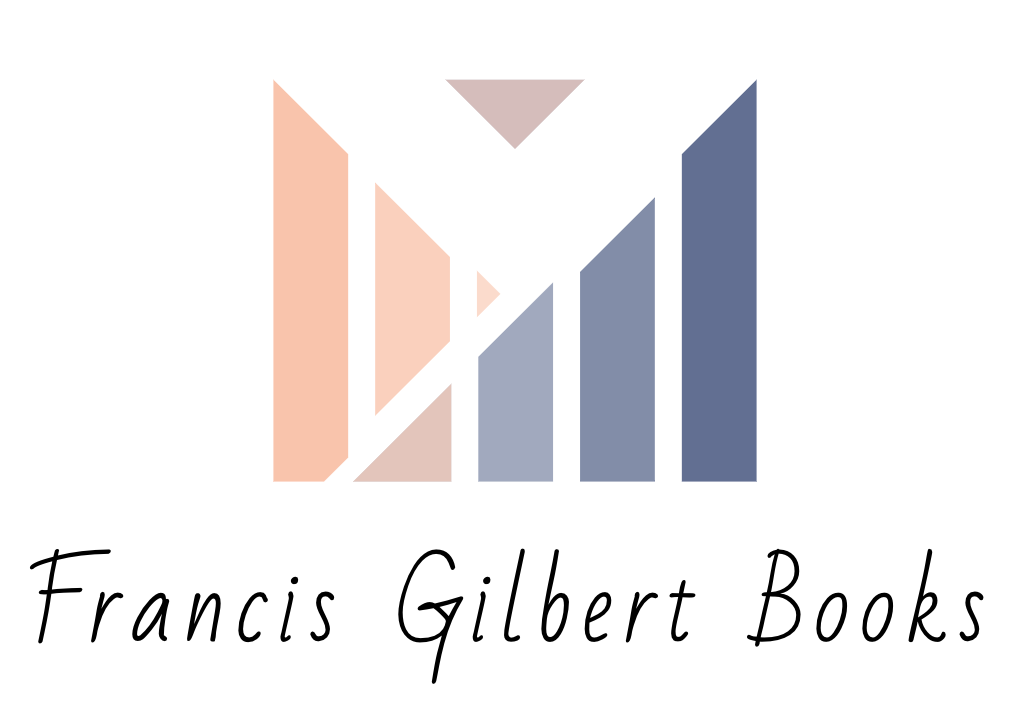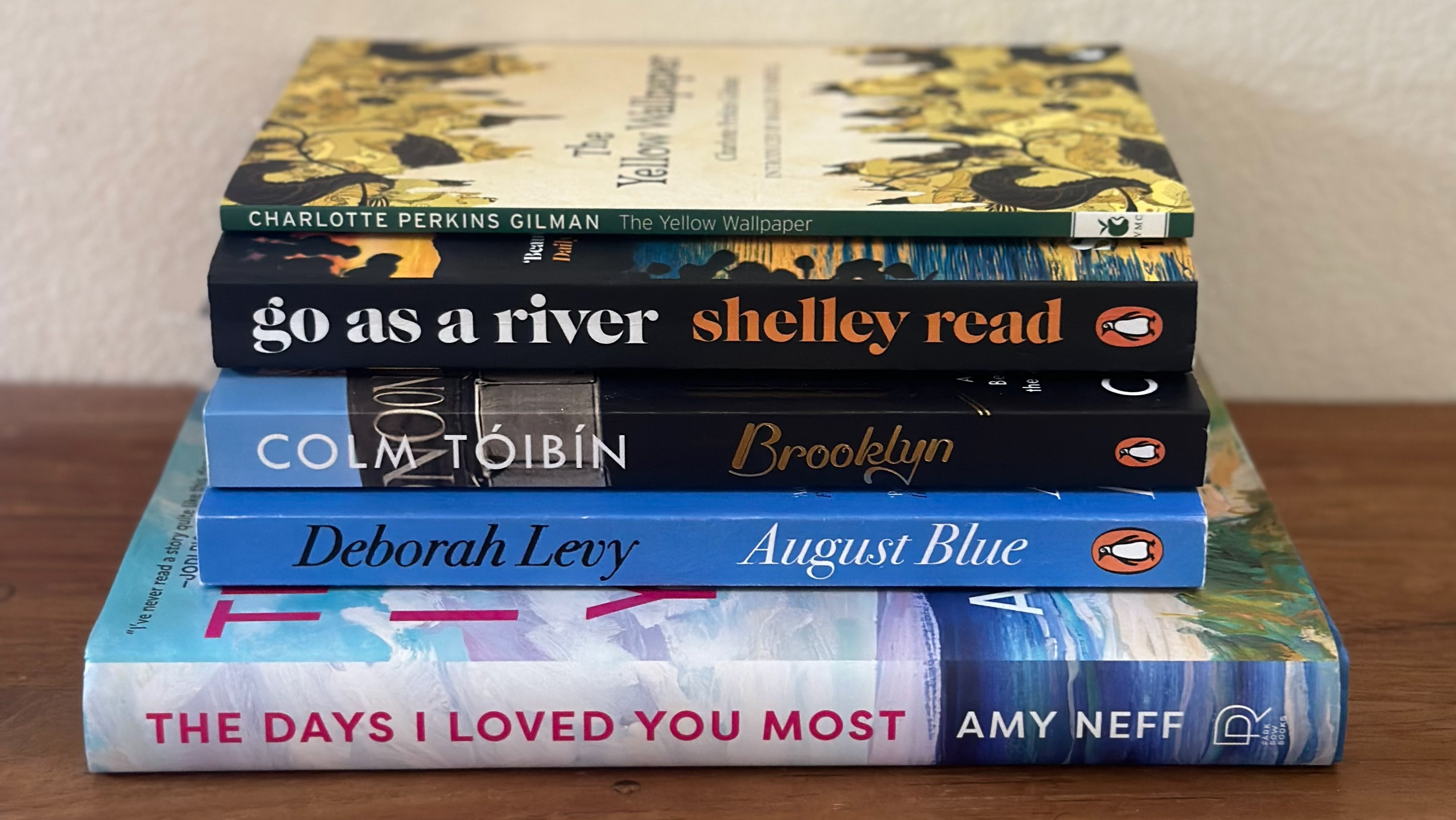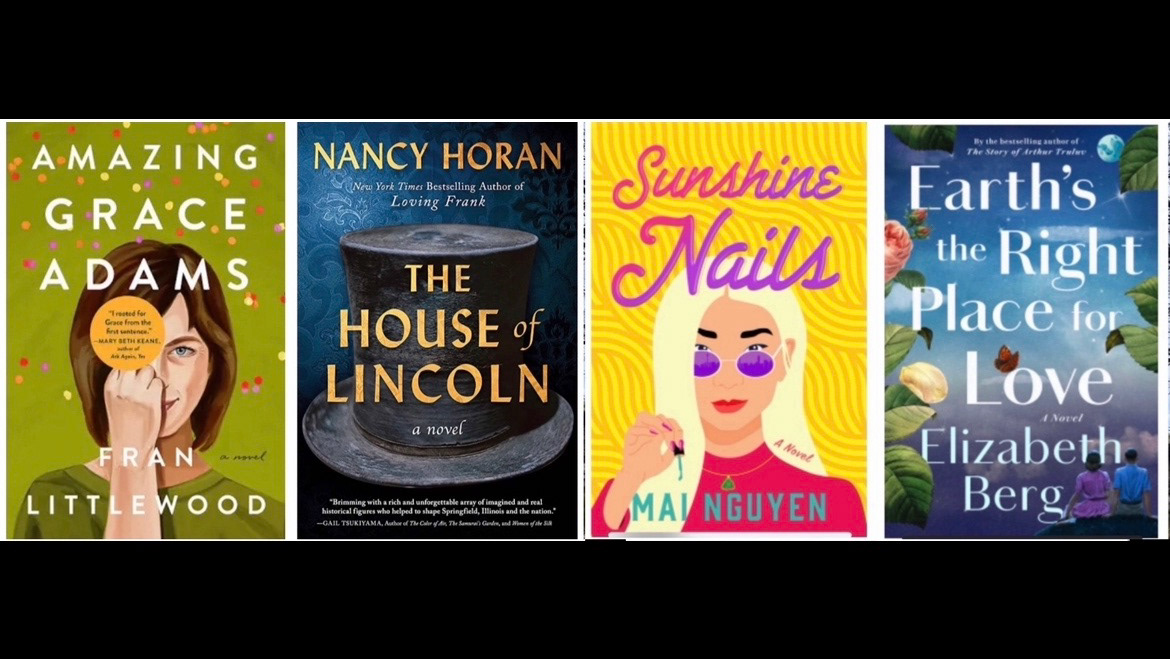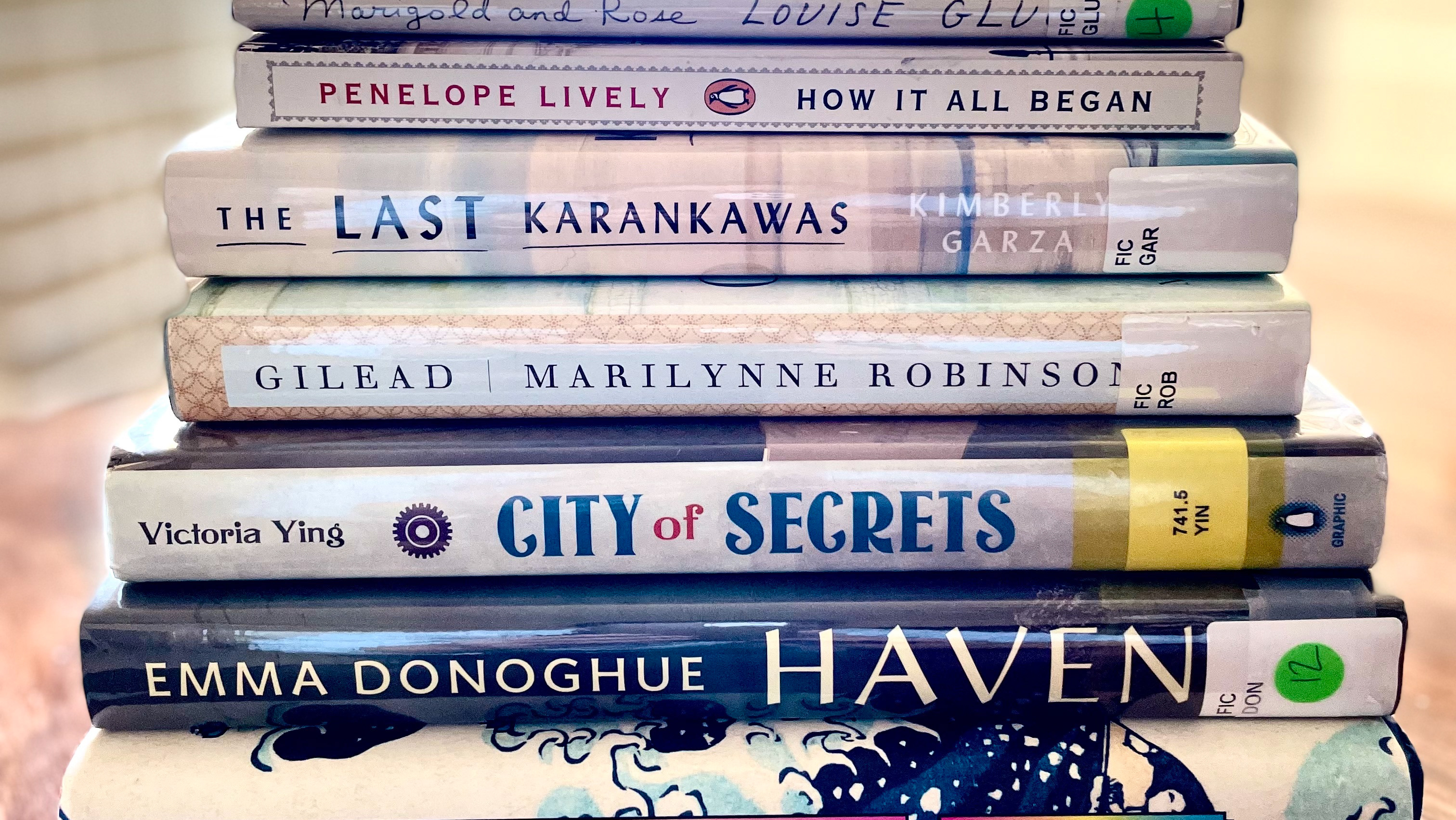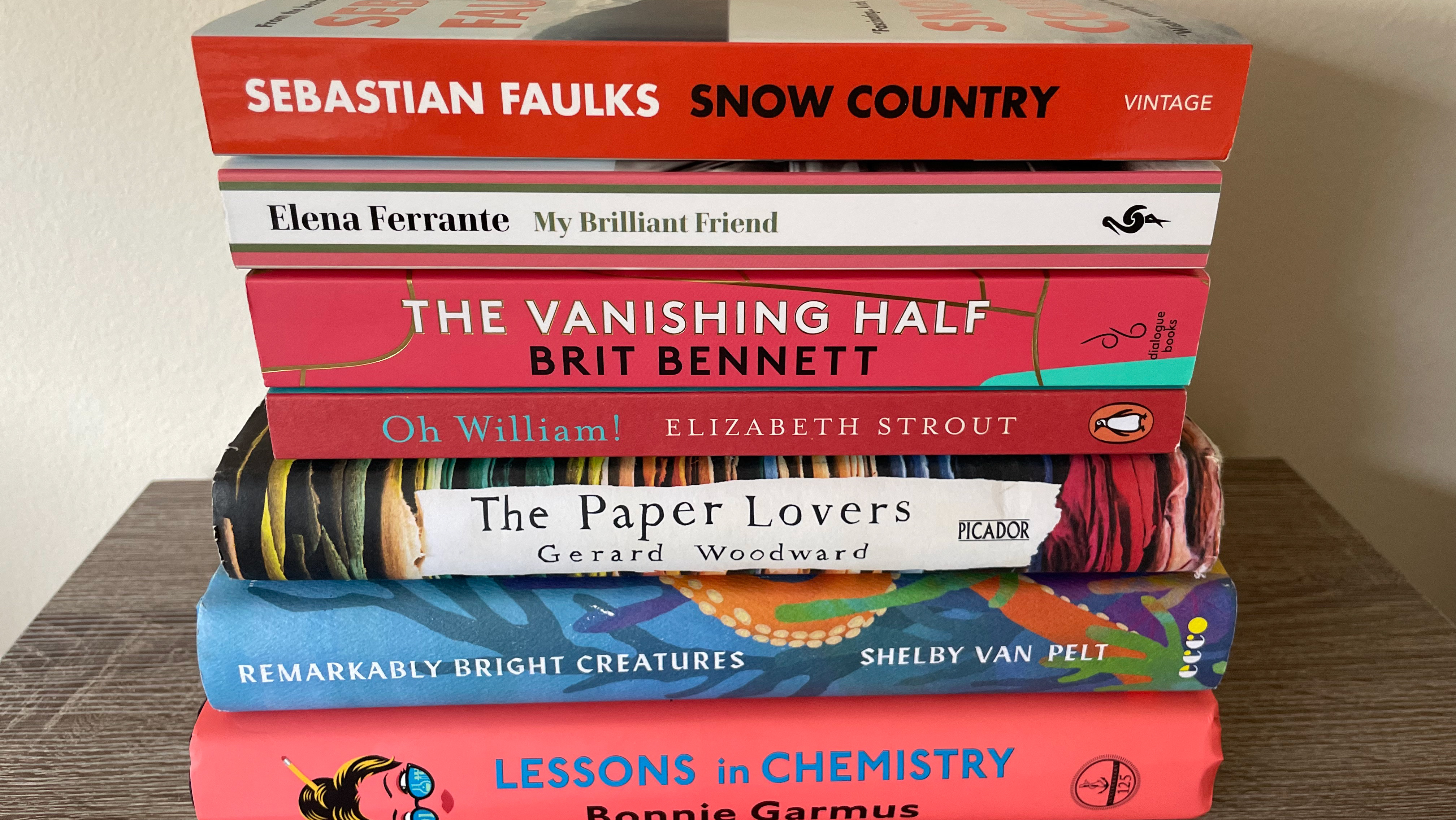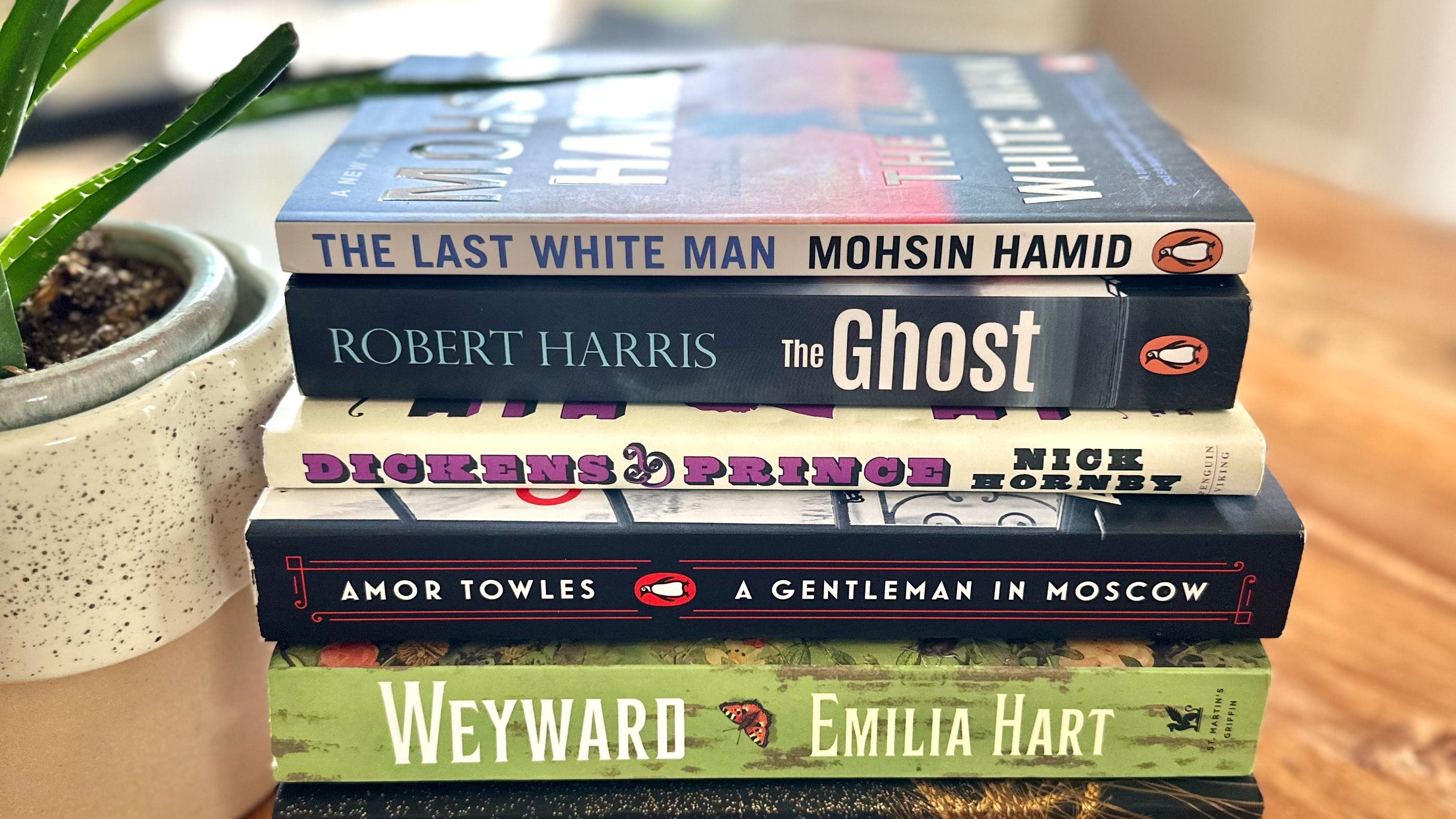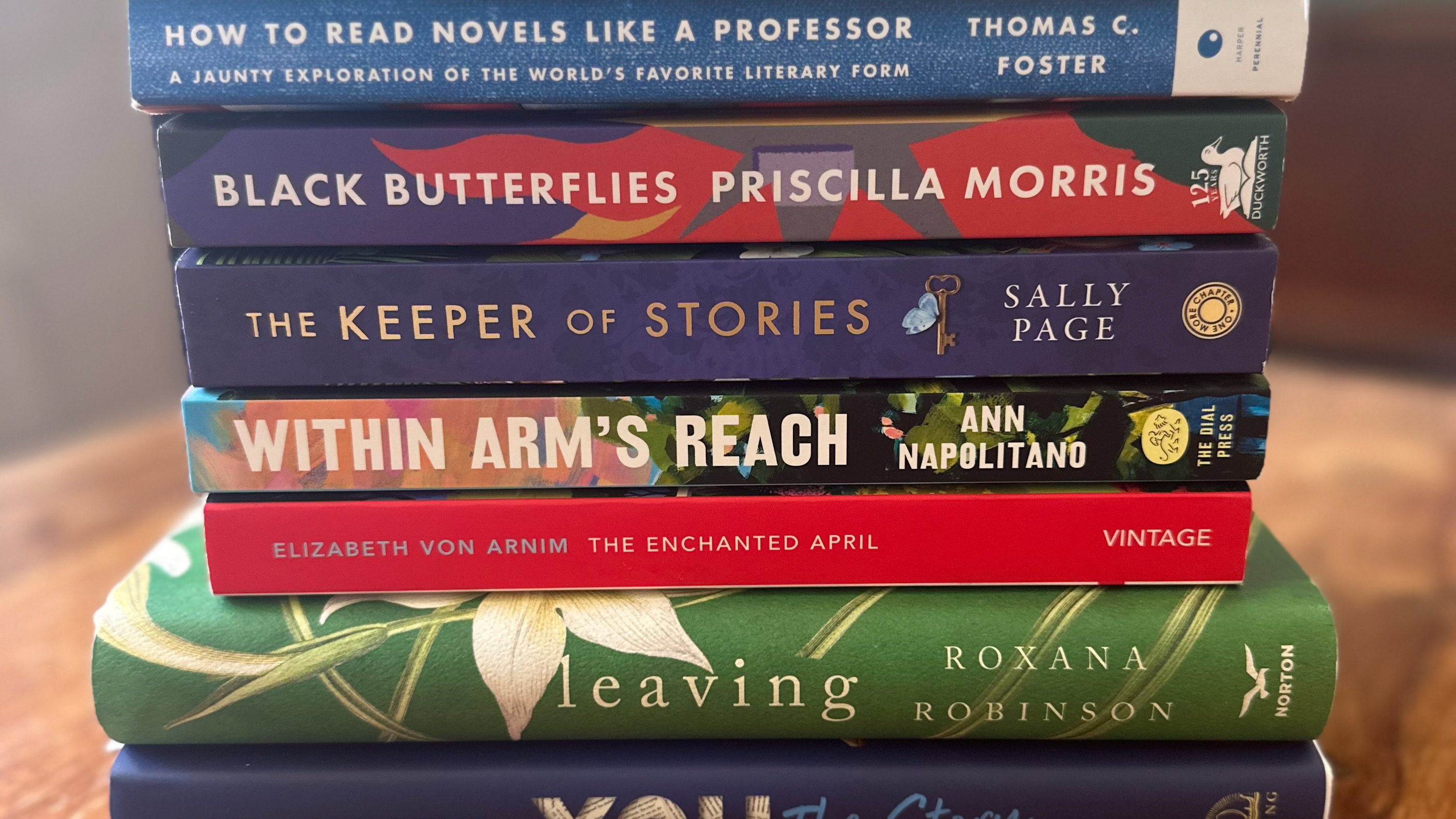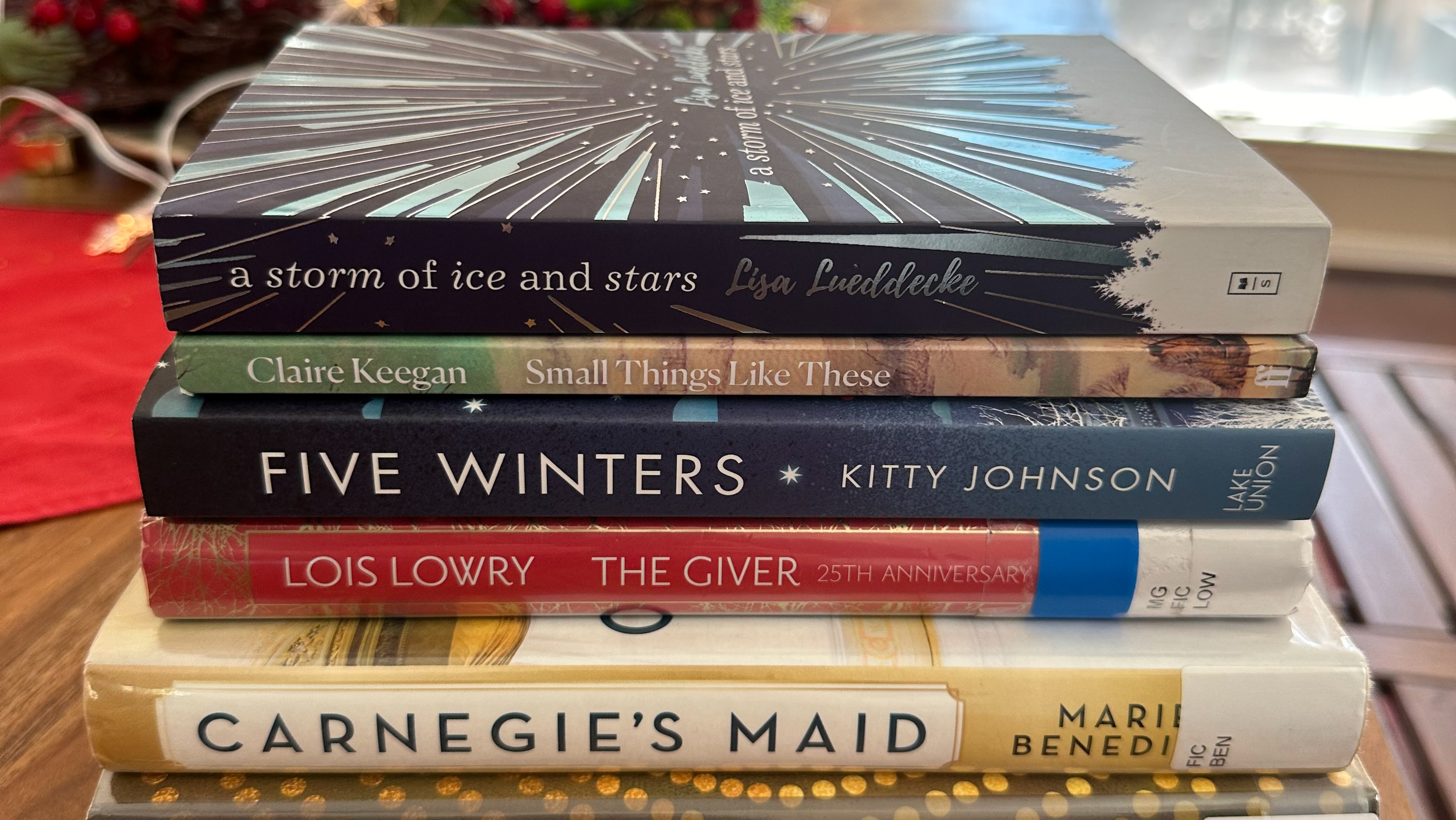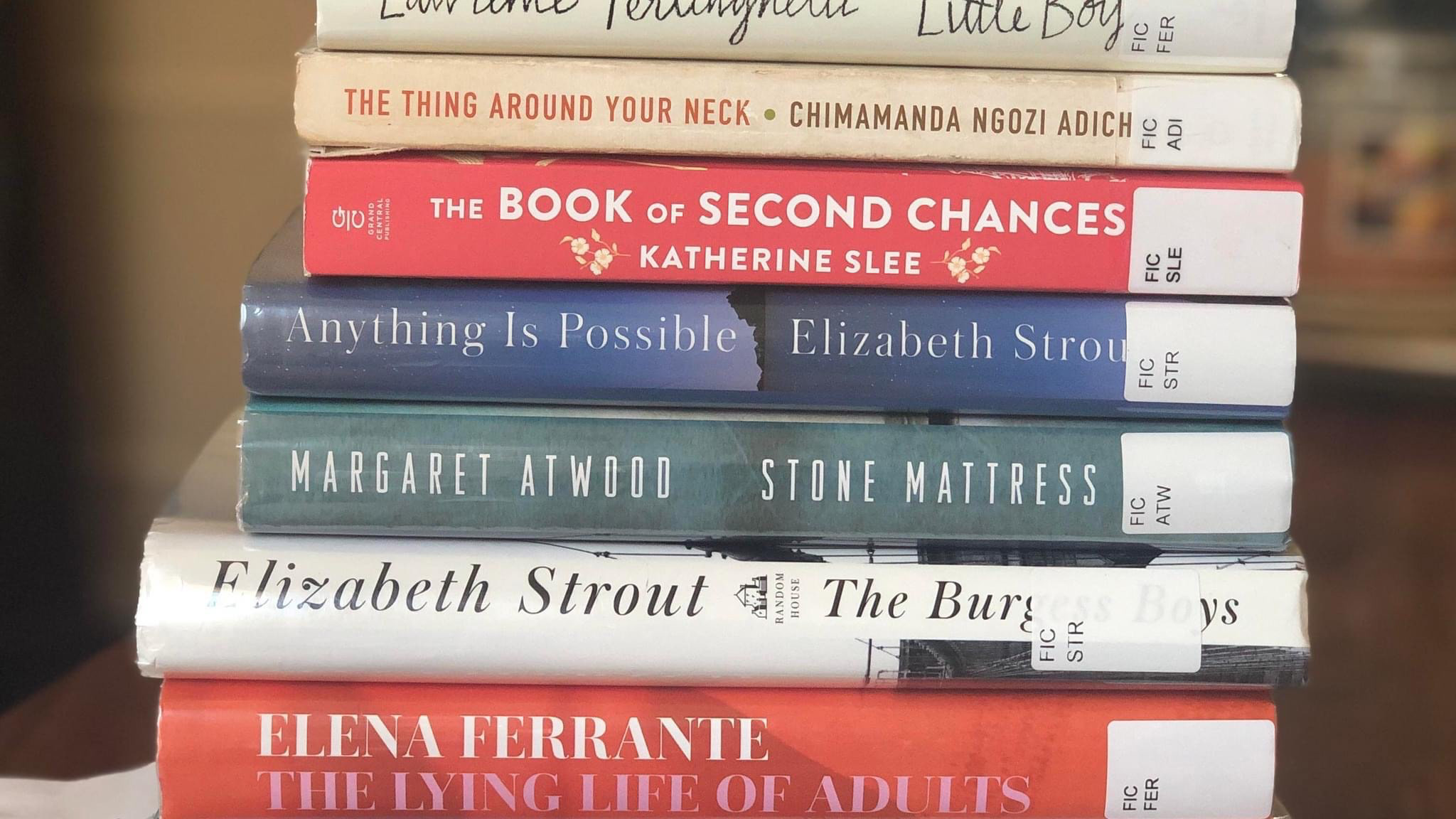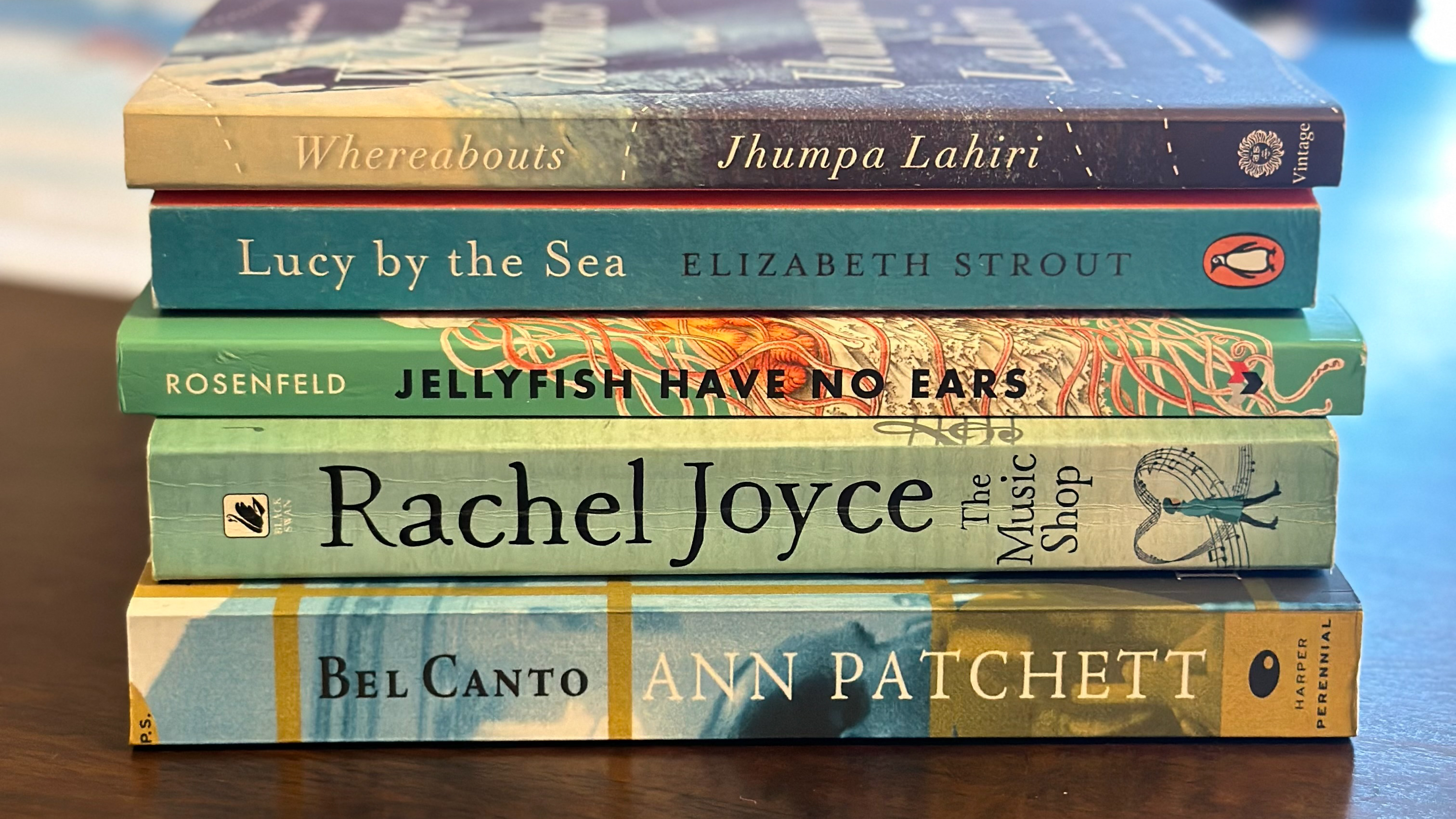My eclectic book pile August 2022. I'm excited to get started.
Mean Baby by Selma Blair
A Memoir of Growing Up
This memoir of a celebrity reads like an autobiography and I liked the person telling me of where she came from, what she thought as a child and how events of her life affected her. The style is open, honest and keeps coming back to a central message of kindness. In places, this jars with the actions Selma Blair explains she has taken in certain periods of her life, such as the biting of her peers including Sienna Miller.
I found it interesting receiving another quite different insight into alcoholism, after having read 'Shuggie Bain'. The story of the mother's alcoholism is devastating, even more so since it is experienced alongside a poverty which is sad, to the extreme. Selma Blair shares her addiction to alcohol from a, 'privileged, miserable white woman who struggles with depression,' perspective. A powerful pairing of books, worth reading together, in some ways.
This memoir makes me really like Selma Blair, as a person who has journeyed through hardships and now wants to put the world straight about many misconceptions of her character, as portrayed by the media. She is like a child, so innocent and vulnerable in her anecdotes about her relationship with her mother and the silly things she has done through life, without thinking of the consequences. I enjoyed many of the messages or morals which came through from the writing. I couldn't always tell if it was truly Selma Blair's voice or that of whomever wrote the memoir for her. The words seem to be evidence of Blair's therapy working. She speaks of low points with candour and resignation. There ought to be anger about what she tells us others have done to her, however the voice of the memoir is calm and accepting.
Her MS and the diagnosis comes later in the book and it helps compound the reader's sympathy for her, in spite of her privilege and celebrity status. We are told of some very personal details of what living with MS can be like in addition to the aftermath of her alcohol addiction, yet it's told with awkward self-deprecating lightness. Like I've said before, Selma Blair seems a likable sweet person with whom I could be friends!
The final points made about her son and motherhood are strong, real admissions. The final pages are Selma's letter dedicating the book to her son and to her mother. Her words are touching and sensitive.
'Words, I discovered, are the salve for curiosity. Words are the connection linking me to everyone else, to all the people before and since. Words were a discovery, threads of humanity connecting us across time and place. Words were my saving grace.'
'A Julie is one of those stable, well-adjusted, loving, and utterly grounded women who comes into your life and makes it better in every way. I owe the major steps of my life to the Julies of the world. As much as humanly possible, I surround myself with their love...so now everyone who knows me calles the good people in their lives a Julie. Another piece of advice: Find yourself a Julie - those guardian angels who walk among us. And then hold on to her.'
'I was making a real effort to go out and make friends again, but unfortunately that often went hand in hand with drinking. The MS hit me really hard at this point, but I didn't yet understand what it was....My personal life was disintegrating.'
Worth a read:
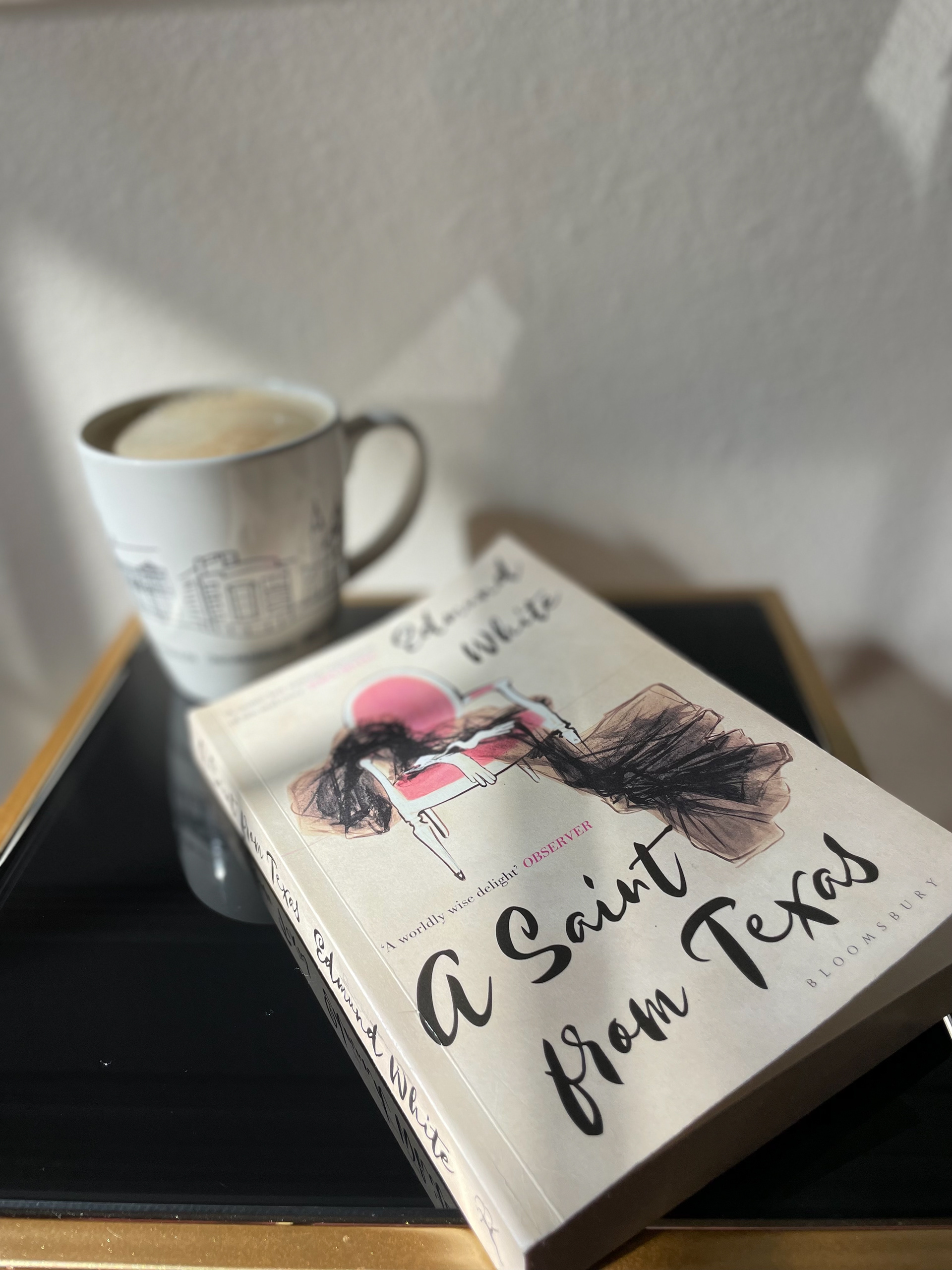
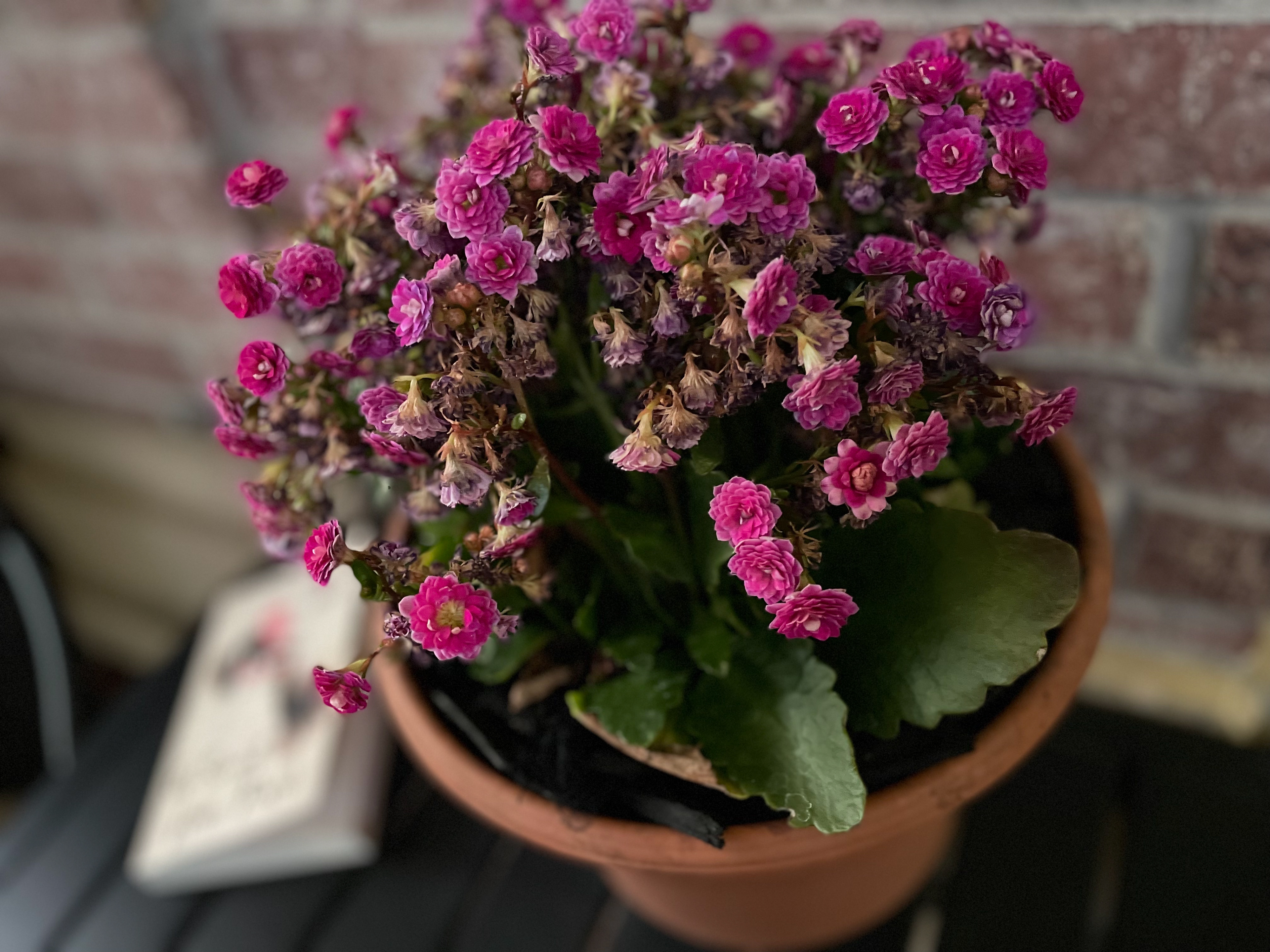
A Saint from Texas by Edmund White
In essence, this novel spans far and wide from its East Texan prairie basepoint. The narrative follows the lives of twin sisters from ‘a ghost town…Ranger – Oil Capital of America’, who move to Dallas and then onwards, seeking to follow their dreams and move away from their past. One sister ‘Why-Vet’ finds herself amongst nuns and serving in a Colombian convent, which we learn from lengthy letters sent to her sister ‘Why-Von’ who in parallel, lives a very different life, having sought cultured French ‘frivole’ and married a baron, thus joining the Parisian elite. We learn through many chapters of her husband’s infidelity and maltreatment, having only taken Yvonne’s father’s oil wealth in exchange for his family name and prestige.
I bought this book from Hatchards in Piccadilly, grabbing it because of its title reference to Texas, and I was not disappointed. The novel is packed full of wonderful phonetically spelt Texan phrases, as well as the French corrected English Yvette is taught as she arrives in Europe to better herself. The novels is epic in its charting of decades in America and France from the 1950s to the recent past. There is presentation of the Dallas nouveau riche, references to Houston and its honest confident existence, which is so distanced from the way France, its ancien regime and ‘airless pretension’ is described through Yvette’s eyes.
What you come across in reading this novel all feels a little weird, in its naïve narration and cultural jigsaw of experiences, emotions and thoughts, but it works. Not having read anything by Edmund White before, and not knowing he is considered to be the ‘pater familias of queer literature’, there were some awkward candid moments in White’s narrative, which I wasn’t prepared for! Not all positive, since one of the sisters endured abuse from her father and although the lesbian relationships and feelings for the sisters are described as healthy for them, their treatment by men throughout makes them appear as victims and vulnerable to the demands of others.
A review from Kirkus Reviews, describes the novel as: ‘steeped in both scandal and erudition…Demystifying everything from lesbian love to communion wafers…a gourmand’s feast of earthly delights,’ which I agree sums it up pretty well! There are many fascinating discussion points in relation to religious thinking, family units, relationships, the institution of marriage, class and social systems and so much more.
In this novel, the satire is rife and comical throughout, though my own prim and proper, perhaps prudish personality meant I laughed nervously, especially with references to Catholicism and lesbianism, amongst others. The indirect satire of minor characters, criticised by characters within the novel for their old-fashioned and ignorant ways, such as the ‘most boring man in the whole world’, the father ‘who told endless jokes about colored folks,’ made it difficult to read in places, yet a searing exploration of social class and sexuality.
A ‘bold and sweeping novel’ and the futility of the pitiful female protagonists is explained in the blurb: ‘And yet, even as they remake themselves in their radically different lives, the twins find that the bonds of family and the past are unbreakable.’
review by Christina Francis-Gilbert
WTF? What have we done? Why did it happen? How do we take back control?
by Robert Peston
Goodreads review
Thought-provoking, for sure. I didn't know how I was going to find this read, still not certain actually. The questions presented by Robert Peston will make you feel a little numb, especially if like me you've lived these last six years intermingling an emotional homelife with children with constant upset from reminders about what is going on in the world politically.
My twins were born in 2016 and I've a strong memory of being awake in the middle of the night, breastfeeding one and then the other, watching the news about Brexit. I'm almost certain a swathe of post-natal depression hit me at that point and a lot of what followed in the world over the following years alongside the challenging care for my babies (not to mention my two older boys!) compounded the feeling of futility and exasperation about the future.
Peston's questions are:
What have we done?
Why did it happen?
How do we take back control?
My reading of this book has prompted reflection but also frustration and despair. With his journalist's background and style, Peston includes factual information with a personal edge. He uses a framed structure in which he offers his opinions and thoughts of the current state of affairs through a personal letter to his late father, who died in April 2016.
There is a great deal in here about thinking in Britain, Europe and America and I've found the comparisons of how each functions politically and socially to be most interesting. We are very different and our histories have determined very different decisions about public funding, governmental choices, civil society plans and so on. However, the greatest point Peston makes is that within each of these places, there are just as many opposing ways of thinking that are still misunderstood and in need of careful acknowledgement.
Peston's view is a very patriotic British one, primarily arguing for the value and worth of the NHS. He tells the emotional story of how his father 'died in a great NHS hospital that was operating at dangerously close to full capacity.' He praises the doctors and staff, using adjectives like: diligent, hard-working, magnificent and explains that his father broke his heart with his display of 'selflessness, humour and rationality...great British virtues,' at the end.
Peston's disparaging comments about political persons in the world is fantastic. You'll have to read this to catch the glimpses of humour about British and world politics. It's a nervous humour, but it's still there and we probably should laugh, to stave off the crying!
The focus and repetition in this book of how fragile the world is now, not just in terms of political troubles in Britain, Europe, America and across the world, but also in terms of preparing for what is coming next on all levels (environment, digital tech and algorithms, governments, finance, health and medical provision, education and much more) was overwhelming for me.
I cannot wait to read a much lighter fictional novel after this one!
I didn't approve of or like the title, but it's probably the only question that covers it 🤷♂️.
WTF? What now?
review by Christina Francis-Gilbert
Shuggie Bain: A Novel by Douglas Stuart
This book broke me.
Oh, the sadness and upset in this novel, which is narrated with so much honesty and shameless truth. Each chapter left me with such a powerful sense of futility and exasperation for the character of Agnes. A human and victim. I'm not sure I even want to call her a character since it is so clear that this is a story about real life and real experiences for people struggling in the world and so in need of help.
Douglas Stuart does an admirable job in presenting the peripheral characters as swaying around the central protagonist of Agnes, as people who have learnt their situation and surroundings, and who understand what is needed to survive in the life context they’ve been dealt. The daughter Catherine and eldest son Leek have an unspoken agreement of calmly keeping the peace in their troubled household. The descriptions of them watching their mother drinking daily and excessively in an habitual manner, but not complaining about it shows a pitiful reality of what life is like as a minor in a destructive dysfunctional family household. Their journey in life was to work out how to break away and escape to a new start.
The crushing bathos halfway through the novel, around chapter 23 is heart-rending. Really unbelievably difficult to read without sadness. I couldn’t help but close the book and sit with a heavy heart after finishing the chapter when Agnes returns home drunk again after her year of sobriety. Poor poor boy Shuggie and his brother Leek. Poor poor Agnes. Poor poor futile situation.
The challenge of alcoholism and addiction is presented with utter truth, with real insights of the disease from which the patient cannot escape. They face it for life. As a type 1 diabetic with a condition that will be with me forever, I wanted to empathise. But I couldn't fully. This is so much worse. The impact and destructive aftermath of a weakness in controlling the alcoholism is of course so much more devastating. And even more so, when children, violence and poverty are involved too.
Such a troubling book with such pitiful and beautiful characters, needing so much help.
I didn’t think I would be able to finish this novel. It affected me with such sadness.
One message I took from the ending was the strength of friendship and support, whether between siblings or friends with familiar circumstances. The positive lighthearted final scene with a glimmer of hope and happiness is one that helps show how strong the children of alcoholics need to and can be. Leanne and Snuggie’s relationship is really shown to be a special one.
review by Christina Francis-Gilbert
Zennor in Darkness by Helen Dunmore
Winner of the McKitterick Prize
I was drawn to this novel by Helen Dunmore since I read her historical fictional novel The Siege years ago and found myself entranced by her presentation of people and their honest experiences of real historical events.
This novel is set in spring 1917 in the Cornish village of Zennor and pulls us into the central character's coming-of-age years as she strikes up a friendship with D.H. Lawrence and his German wife. For this reason, I found the novel to be both interesting and informative as I knew Dunmore was offering a narrative tale interspersing biographical details of the author's life as well as true and sensitive images of what life was like during World War One.
I am entranced by the accurate and artistic image comparisons which Dunmore uses in her writing and she really is a master at building a literary scene of beauty. Her description of the innocent moments shared between the protagonist Clare Coyne and her cousin John William is tender and 'mesmerising'. Helen Dunmore also writes with extreme insight of nature and landscape. Her setting of scenes, in this case the coasts, cliffs and shoreline of the Cornwall is artistic as if she has painted the scene for us in watercolour or oil. Magnificent. A real literary novelist and one I will continue to admire.
A few points of difficulty included the slow disjointed opening chapters which didn't fully connect until over half way through the novel. The dream-like sequences and switching between some of the thoughts of main characters including Clare and her father also needed additional attention to follow in terms of the narrative flow.
I look forward to discussing this one further with friends in one of my book groups.
review by Christina Francis-Gilbert
The Seven Husbands of Evelyn Hugo by Taylor Jenkins Reid
This novel is clever in its representation of history through an imagined character. I imagine I haven’t been alone in wanting to know which Hollywood actress from the past inspired the character of Evelyn Hugo. Her glamour, beauty, character and approach to life and career.
The themes of loyalty, identity, friendship, and betrayal are intertwined within a framed narrative where Monique, a magazine reporter listens to Hugo’s life story as it is told to her ready for publication. We, the readers listen too, though the reliability of Hugo’s tales is not exact, adding an unsettling feeling to the sadness portrayed.
The central figure of Evelyn Hugo is so absorbing and fantastic that we are moved into her description of experiences from the 1950s all the way up to 2017 when Monique is placed in a predicament regarding the publishing of Hugo’s secrets and the truth about her scandalous though glamorous life. Each character connected with Evelyn Hugo’s life has similar sadness and a troubling depression seems to hover over all the characters from this classic Hollywood setting.
I found myself immensely saddened by the stories and incidents presented in Evelyn Hugo’s autobiographical stories. She came across as a troubled girl and it was difficult to feel upbeat about where the novel was going. We knew of her seven husbands and each one represented a different challenge in her life, even when a marriage was first sought as a solution to a difficulty in her life.
Although a novel which had a downbeat after-effect on me, I enjoyed Taylor Jenkins Reid’s style and innovative approach to an historical fiction genre novel and I will be looking to read some of her others: Malibu Rising, Forever, Interrupted and Carrie Soto is Back.
review by Christina Francis-Gilbert
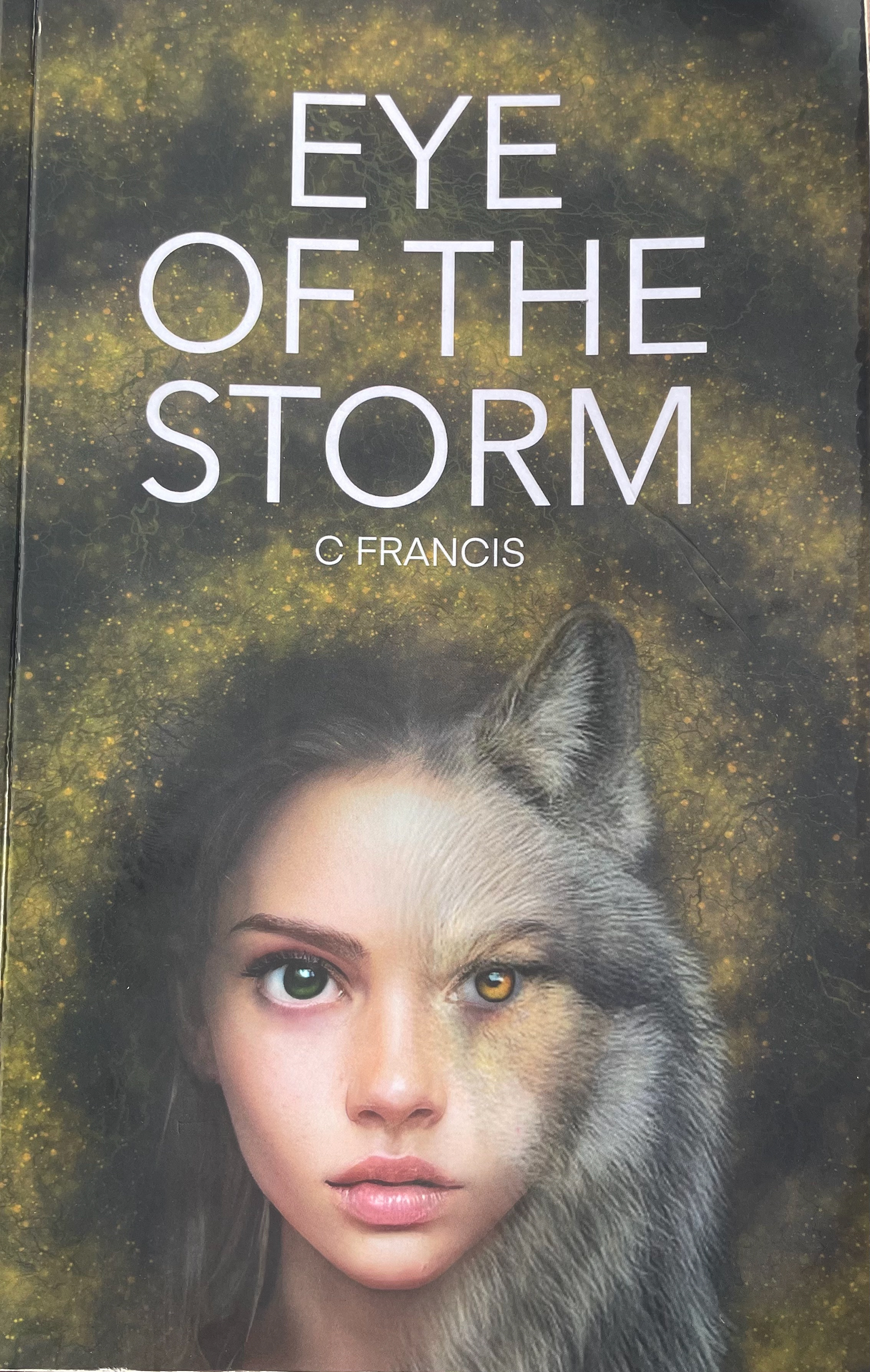
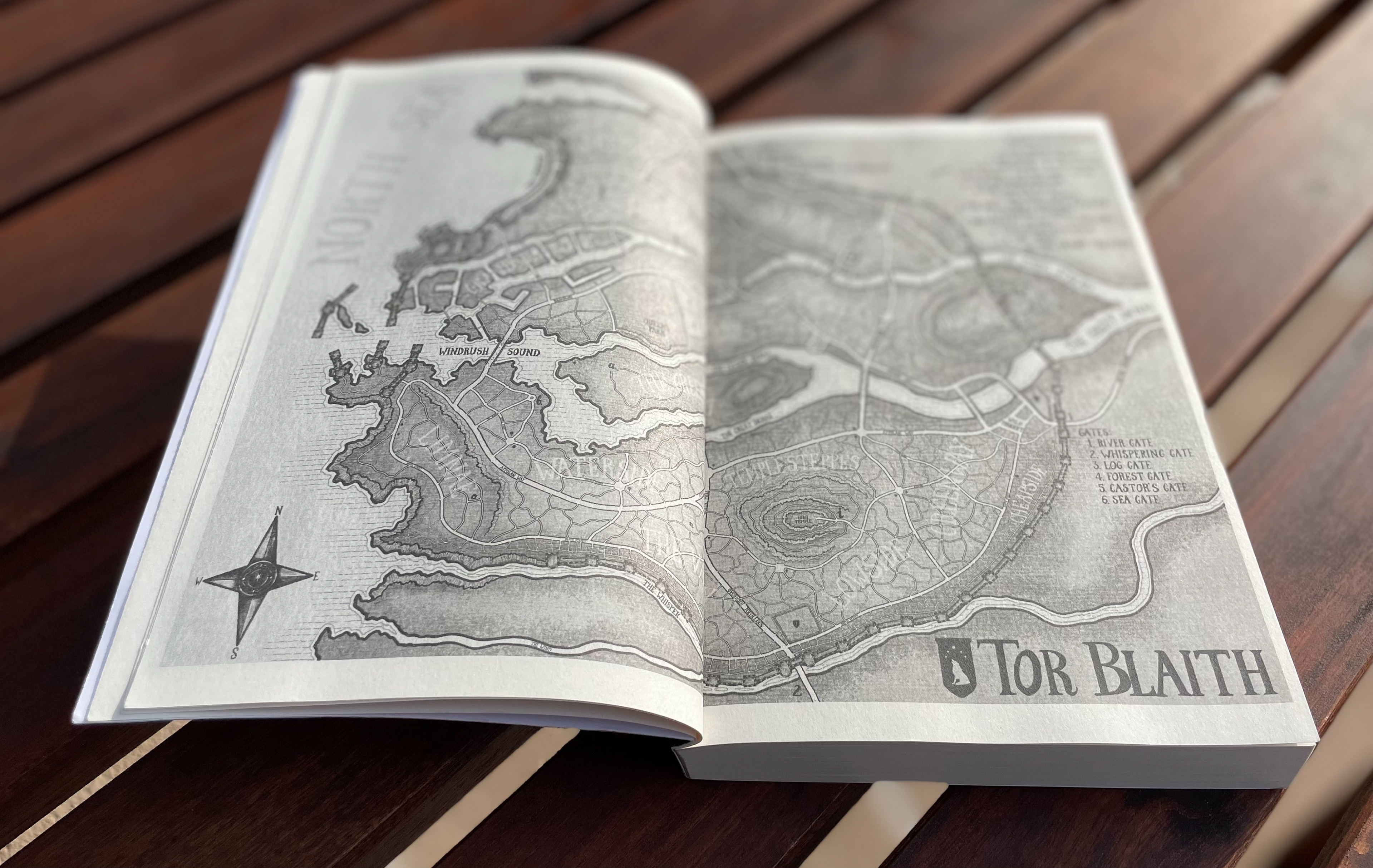
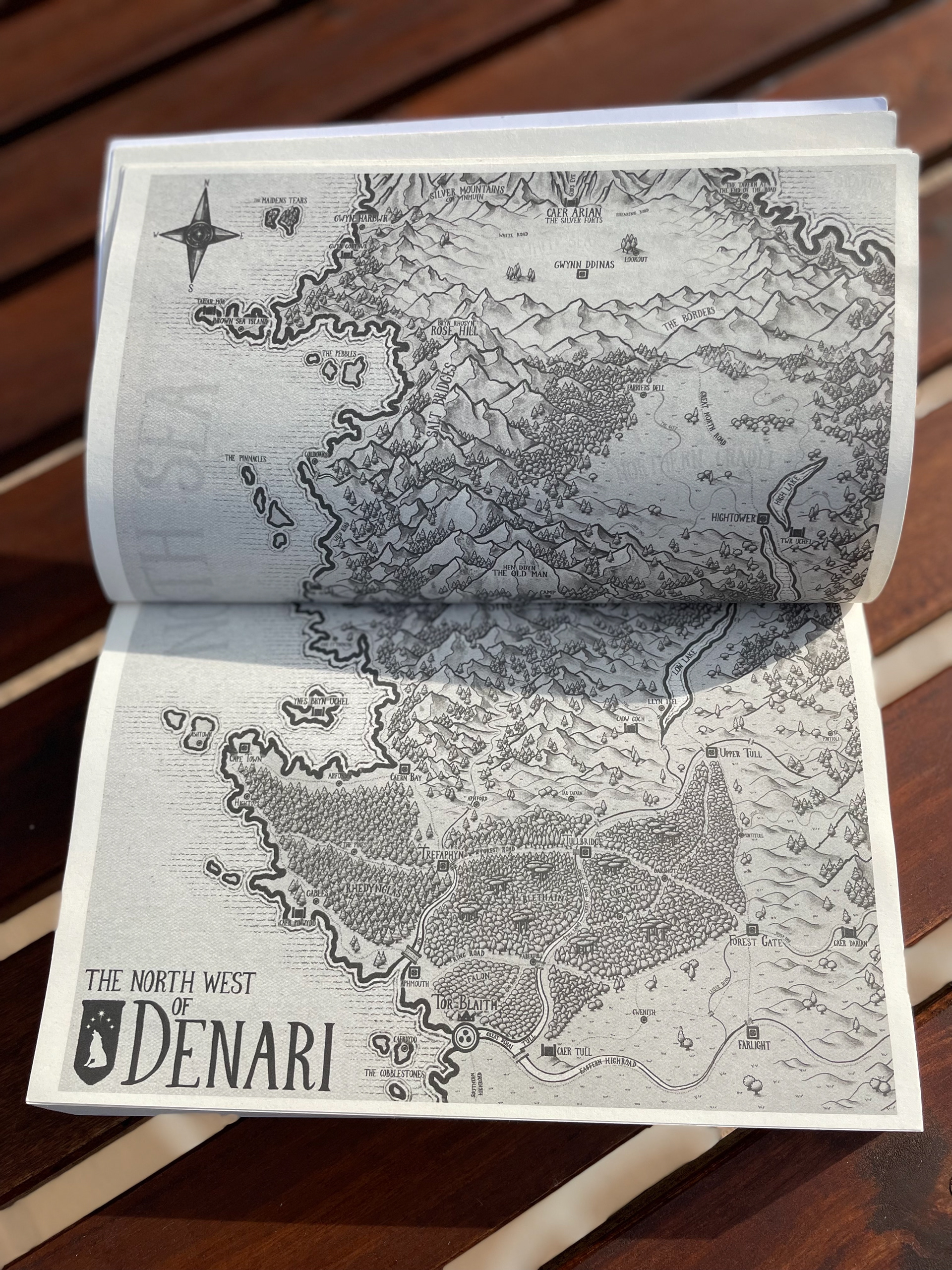
Felberend: Eye of the Storm by Charlotte Francis
I am honoured to have been given the chance to be one of the first readers of Charlotte Francis’ novel Felberend: Eye of the Storm. She has welcomed me into her fantasy world with open arms and I am most grateful.
Charlotte Francis’ artistic rendering of intricately planned realms such as the Farojian Empire, lands such as Denari, surrounded by water such as the Shearing, Aeian and Agean Seas on her impressive maps is pure treasure on the opening pages of this soon-to-be published novel. I love the author’s created place names such as Tor Blaith, Bryn Rhosyn, Gwyn Harbwr, Blethain and Caern Bay, as well as The North Sea, knowing as I do of Charlotte Francis’ Welsh heritage and connection with The Netherlands. Many descriptions of places within the novel also offer hints of places readers may well recognise or notice as familiar. I particularly enjoyed chapters set in the Coscona Market place, a ‘sprawling bazar…so bloated that no-one knew where the market ended anymore’, and the centre of the town Tor Blaith, described as a ‘city of islands’, with ‘…houses that lined the river…smoky saloons of the district’s many alehouses’ and waterways ‘clogged with barges’.
I understand this novel to be a prequel to an epic fantasy series, which will set up the reader for journeys, shared life experiences, conflicts and fantastical excitement galore, yet in this novel we are given so much more than simple introductions to characters and locations. In fact, we are offered an insight into a story which I would wager could well be seen on screen ahead of a traditional novel.
You might feel like you are engrossed in a game-like maze, desperately pursuing your team leader as you read many of the chapters propelling you through the narrative. Thais, who is the young, naive protagonist of the tale does not wait for anything or anyone. She is vulnerable, thinking she is at one with her surroundings, yet her instability in knowing where she truly belongs is established as her falling point from the start. Each page of this novel transforms you through magnificently described castles and palaces, whilst the next chapter transports you along the branches and upper canopy level of forests and another chapter pushes you through streets and alleyways of an imagined townscape.
I found there to be a real urgency in characters’ decisions and actions. Not having read fantasy novels in awhile, I soon remembered how essential it is to reveal characters, locations, relationships and characters’ aims in order to build the world. At times, I found myself needing to check back to earlier chapters where there may have been significant explanations and hints as to why a certain incident was taking place. In this novel, the reader is encouraged to accept that there is no space to pause and reflect. You must stay focused as you are whisked from one location and incident to the next!
Not only have I been absorbed and mesmerised within these beautiful pages of Charlotte Francis’ debut novel, I have also learnt a whole new vocabulary with words and concepts like the ether, Sensitives, planes, Nature’s Web, instincts, tendrils, mantles and wraiths.
I must end by saying how much I loved the wolf character of Pax, who steals the story for me with his advice for the young protagonist Thais, not spoken aloud but whose ‘voice [is] in her mind.’ There are other characters who I have loved and others about whom I’m intrigued to know more.
I look forward to following the journey of this novel, its characters and its author.
review by Christina Francis-Gilbert
